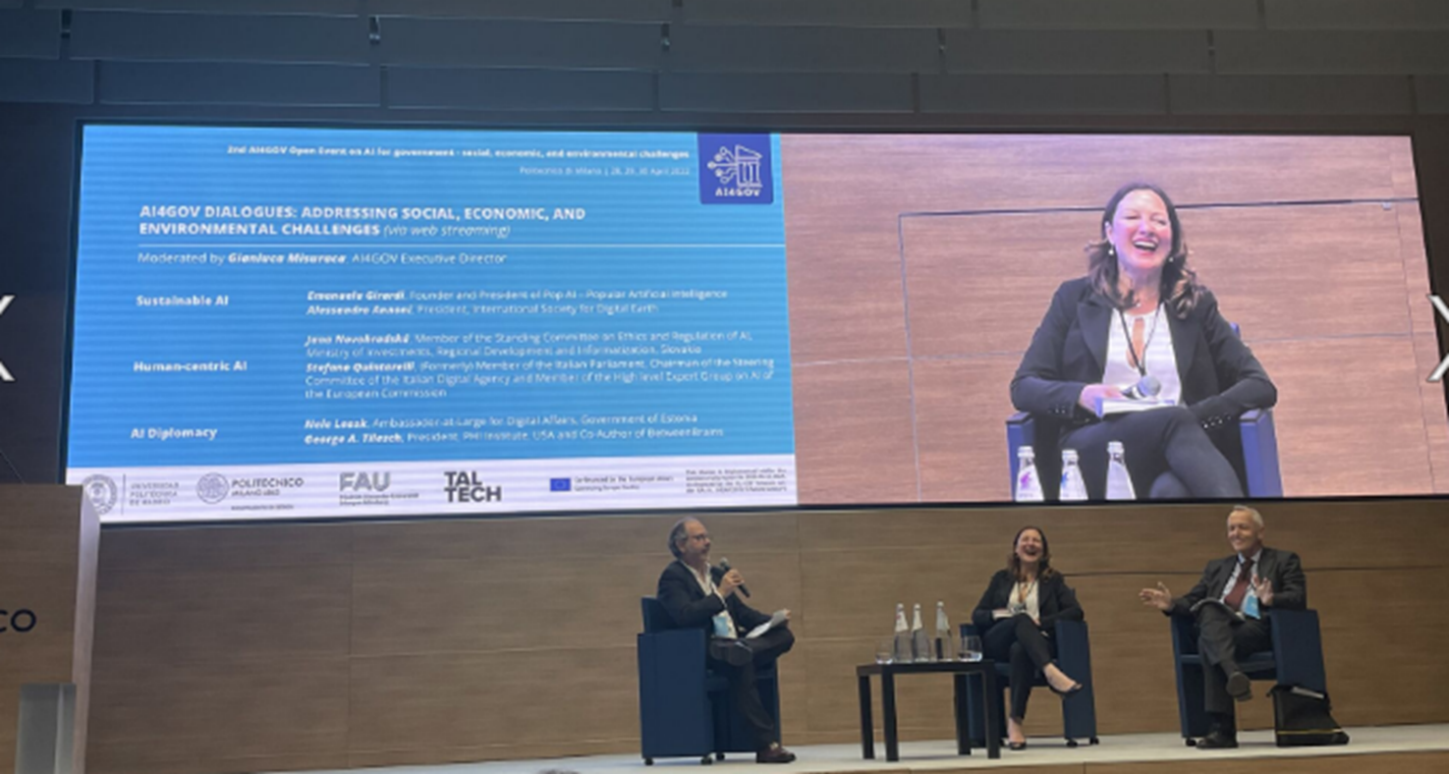Within the AI4Gov_EU Programme a three-days event on "AI Enabled Innovation for Digital Government Transformation" took place in Milan- Politecnico di Milano - from 28 to 30 April 2022. The event was organised by AI4Gov_EU master partners Universidad Politécnica de Madrid, Politecnico di Milano, FAU Erlangen-Nürnberg, TalTech – Tallinn University of Technology.
Alessandro Annoni, ISDE President and Emanuela Girardi, Founder and President of Pop AI (Popular Artificial Intelligence) were invited to attend the first Dialogues session on Sustainable AI. Jana Novohradska, Member of the Standing Committee on Ethics and Regulation of AI and Stefano Quintarelli, Member of the High level Expert group on AI of the European Commission attended the second Dialogues session on Human-centric AI. Nele Leosk, Ambassador-at-Large for Digital Affairs, Government of Estinia and and George A. Tilesch, Presient of the PHI Institute attended the third Dialogues session on AI Diplomacy.

Alessandro Annoni talked about the role of AI for sustainability underlying that we should not only pay attention to the environmental dimension of sustainability but we must assess the social and economic impacts. The impact should be assessed at 3 different levels: micro (impact on the single actor), meso (impact on the surrounding environment) and macro (impact at global scale).
He called for a strong role of the government not only to regulate the use of AI but mainly to accompany the transition to these technologies to avoid digital divide, concentration of power, and raising of inequalities if not accompanied by specific policy measures.
As answer to a question about the threats that AI could actually bring about and the challenges to be addressed to achieve an effective sustainability of AI systems he replied with the example of AI for energy saving. He recognized the potential of AI for saving energy but as well he underlined that is becoming more and more difficult to evaluate individual impact of AI on consumption because energy is consumed for data processing (on the cloud) data transfer and data storage. So he recommended that in order to consider AI sustainable from an energy perspective we need to take into consideration energy consumption in the whole the energy cycle.
In reply to the last question about Digital Twins he reminded the risks associated to delegate decisions to a machine that is basing his decisions on the data ingested during the machine learning phase. His main recommendations was to strengthen quality control and quality assessment and ensure fast correction of the software in case of possible failures.
About the AI4Gov_EU world-class master’s program in Artificial Intelligence for Public Services, please visit https://ai4gov-master.eu/.

2004-2026 All Rights Reserved 京ICP备06045536号-1 京公网安备 11010802041631号